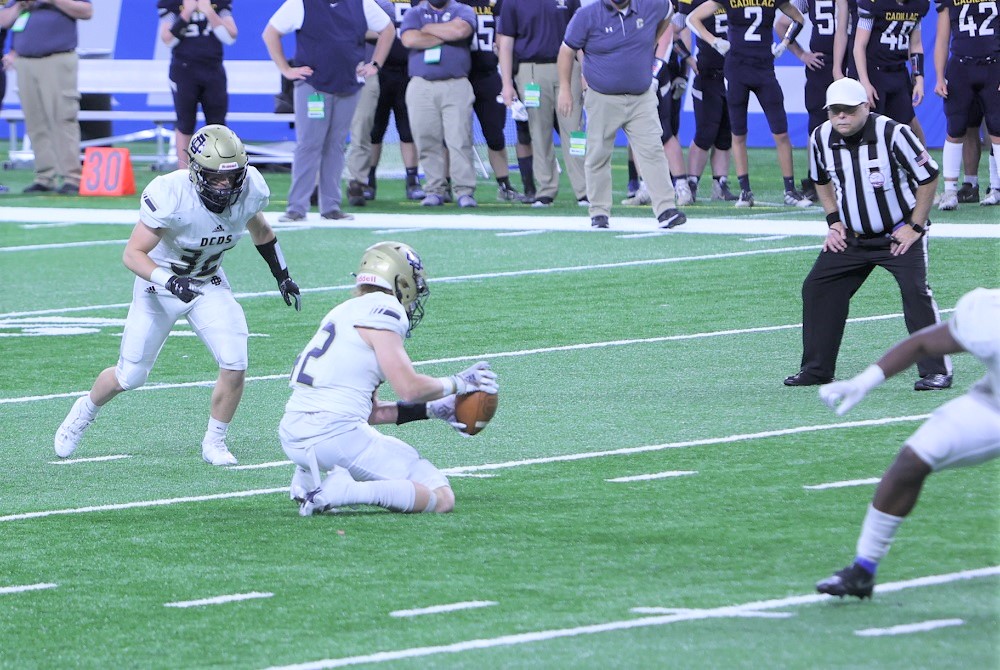
Be the Referee: 40-Second Play Clock
August 30, 2018
In this week's edition, assistant director Brent Rice explains how Michigan is continuing to experiment with a 40-second play clock in football.
Be The Referee is a series of short messages designed to help educate people on the rules of different sports, to help them better understand the art of officiating, and to recruit officials.
Below is this week's segment – 40-Second Play Clock - Listen
There’s an experiment taking place on a number of high school football fields across the state again this year. Michigan is experimenting with a 40-second play clock in football.
This is designed to provide more consistency from play to play as the ball must be snapped 40 seconds after the end of the previous play and is not dependent on the referee’s subjective signal.
When play is continuing without a stoppage, the 40-second play clock will be used. If play has been stopped for a time out or penalty, the play clock will be set at 25 seconds.
After two seasons, the feedback received from coaches and officials has been very positive, and there’s a possibility the Michigan experiment may become a new national playing rule soon.
Past editions
August 23: Football Rules Changes - Listen

Be the Referee: Field Goal Falls Short
By
Sam Davis
MHSAA Director of Officials
September 30, 2021
Be The Referee is a series of short messages designed to help educate people on the rules of different sports, to help them better understand the art of officiating, and to recruit officials.
Below is this week's segment – Field Goal Falls Short - Listen
Three things can happen if a field goal attempt crosses the line of scrimmage but comes up short of the goal line. Do you know all three?
First, the ball can go out of bounds. If that happens, the ball is dead and on the change of possession, the team newly on offense takes over where the ball went out of bounds.
Second, the kicking team can be the first to touch the ball. When that happens, this is the first touching and again the team newly on offense takes over where the ball was downed.
And third, the receiving team can return the kick. And they would take over on offense after the returner has been tackled or goes out of bounds.
Think of a field goal attempt as a punt, and you’ll always know what’s possible if the kick comes up short of the goal line.
Previous editions
Sept. 23: Volleyball Obstruction - Listen
Sept. 16: Catch or No Catch - Listen
Sept. 9: Intentional Grounding – Listen
Sept. 2: Pass Interference – Listen
Aug. 26: Protocols and Mechanics – Listen

